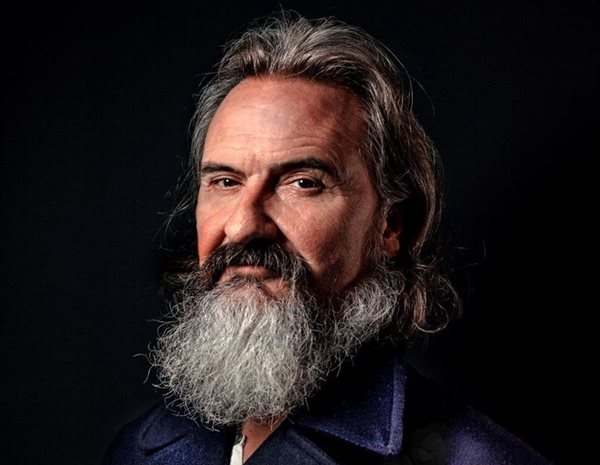Currently we all speak from a position of absolute ignorance. No one can truly know what the outcome of this pandemic will be, nor when the virus will pass or if it will ever be defeated. Even if a vaccine is developed in the next few months it's clear that we will forever mark this moment as one of seismic significance. From now on we will talk of pre- or post-C19.

Howard Saunders
If there’s anything positive to be wished from this, it’s that perhaps this is the socio-economic reboot we’ve all been yearning for. It’s almost biblical. The developed world has become increasingly guilt-ridden, hysterical even, over its impact on the planet, and steeped in doubt as to mankind’s purpose upon it.
In short, we grew to despise humanity and believed humans were responsible for all the planet’s ills. We became fully signed up Malthusians! Our new gods utterly despised us (Greta, Attenborough) and believed robots would do our jobs better than us.
Pre-C19 we grew hysterical over every social injustice, inherited privilege or innate bias we could hunt down or dig up. Put simply, we now have something more urgent to fret about, namely survival.
In the long term, we will learn to pull together more and it may well set our ship on a clearer course. In the short term, however, we must not underestimate the catastrophic effects it will have on twenty-first century life. Thousands of shops, pubs, restaurants, bars, cinemas, galleries and venues will close down for good.
There’s no question the retail apocalypse has arrived. Unemployment will soar as fast as our incomes decline. Nations will focus on feeding their own, rather than exports, meaning we’ll become accustomed to buying locally produced, seasonal food. Yes, globalisation died in 2020.
We’ll learn how to cook again, bake bread and home-brew. We’ll take on more DIY, learn to knit, sew and play instruments. Our renewed sense of mortality will see many of us writing diaries and journals again. In short, we’ll live simpler, dare I say more austere, lives.
As social animals the restrictions on social activity will be our greatest challenge. Months on end without family gatherings, nights out, holidays, celebrations, parties, festivals and sporting events will hit us harder than we can imagine.
But when, finally, we do emerge from this storm, consider how much we will cherish those ordinary, yet beautiful, social interactions we took for granted only a couple of weeks ago. It’s the hugs and the handshakes that give humans their humanity.
Very soon we will understand that retail and hospitality were never really about buying more stuff or filling our bellies. Our industry is all about human engagement and post-C19 I expect shops and restaurants to welcome us more warmly and sincerely than at any time since the festive period.
Sadly, as C19 proliferates, we are unlikely to be dancing and hugging in the streets as in 1945. Masks and visors will become standard dress, and restaurant staff will be obliged to wear protective gear for insurance purposes. Tables will be widely spaced and prices will have to rise accordingly. But with unemployment at 30% very few will be able to afford the luxury of dining out, so it will feel like a return to the 1960s.
We'll learn about ourselves
The coming months will teach us a lot about ourselves. We will learn how to work remotely, how to replenish essentials online, how to write, read and entertain ourselves (We’ll also learn that bulk buying makes no sense.) Social media will undergo a much-needed reset as we become more sensitive to the vacuousness of posts and tweets that scream little more than fatuous mundanity or misplaced self-puffery. Our media will mature to reflect the age.
The global move into cities will reverse. We will have learned how to work remotely and, more importantly, what we really want from work. Cities will lose much of the thriving lunchtime market along with most of the fast-casual brands. Cities will become less about work and much more about play as we head back to the city in the evening for the choice of restaurants and the entertainment.
Celebrity culture will undergo a much-needed correction too as our moral and social hierarchies turn upside down. Hollywood will be humbled enough to stop its finger-wagging and lecturing. The BBC will follow too, if it survives.
These next few months are a period of contemplation not just for us but also for brands. Any brand waiting to bounce back to market post-C19, revved up like bloody tiger will have got it wrong. Advertising, as we currently understand it, finally died in 2020. Brands, like humans, must rethink their roles and their purpose. Legacy brands will either die or back out quietly.
Post-C19, we will expect our brands to be philanthropic, sponsoring, partnering, teaching and incubating on behalf of the local community. Brand values will shift away from self-indulgence, luxury, celebrity and narcissism towards more fundamentals such as family, home, friends and wellbeing.
Cultures don’t usually adhere to the tidy chronology of the decades. The 60s didn’t properly begin until 1964, for example. But the new age that lies ahead really did begin in early 2020. Expect everything to get a reboot, from our lacklustre music, inane superhero movies and even our egotistical urban ‘starchitecture’.
2020 is a mighty test for us all. When we do come out the other side we are sure to be more appreciative of simple pleasures, and a little more content with life on Planet Earth. Perhaps 2020 is the year of vision after all?









































